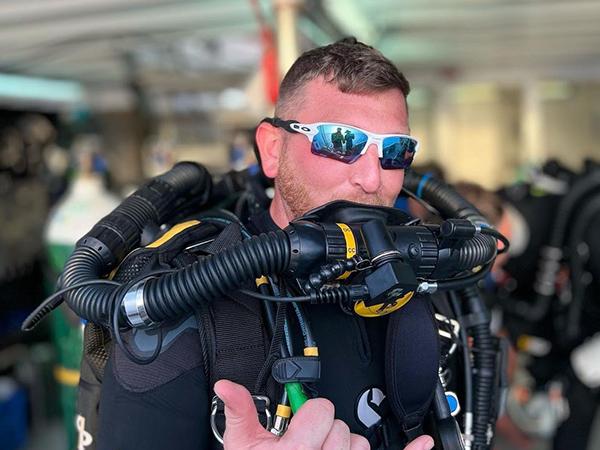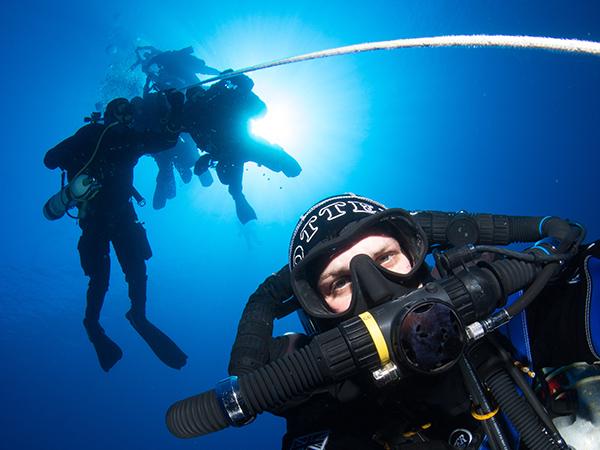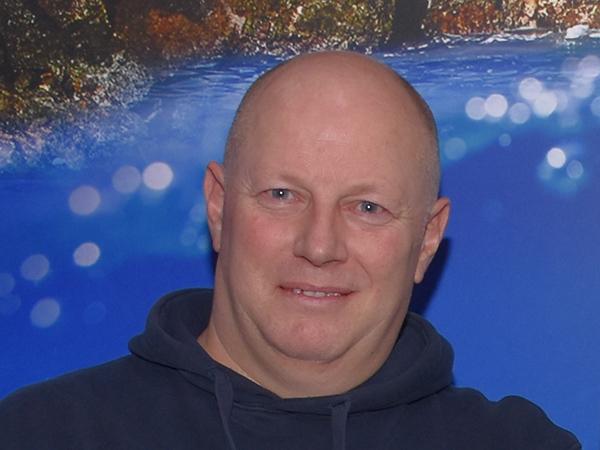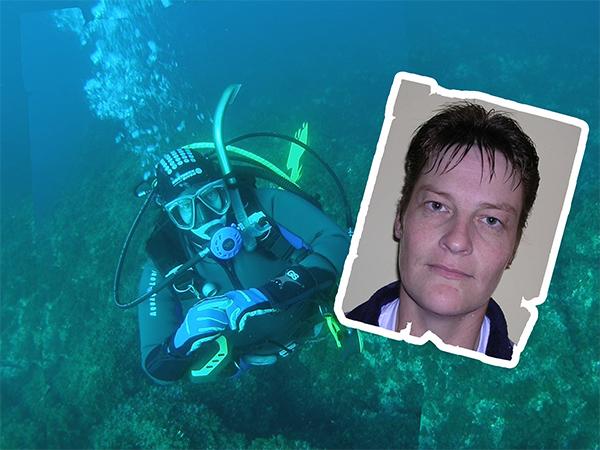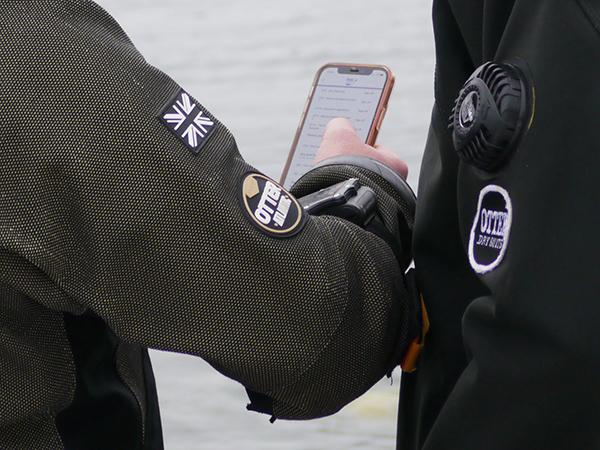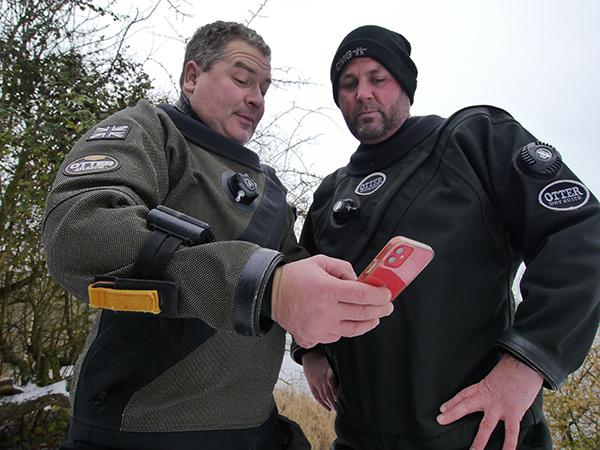Frequently asked questions and responses from the Jubilee Trust to help give you and understanding of the types of projects that are likley to get funding.
Find out what type of project will qualify your team for a grant, what to do next if you receive a grant and how to apply for an award or scuba prize too.
- Someone is prepared to give me money to go diving?
Yes, BUT! - There's always a ‘BUT’ so what is it?
Yes, BUT the results of your diving should be of benefit to the diving community in general AND there one or two other conditions to be fulfilled.
The Jubilee Trust exists to help and promote good ideas for the development of the sport of diving as practiced by BSAC and other appropriately recognised diving bodies. Often divers either individually or in groups, have ideas for extending their activities beyond normal club diving but need funds to help them get started. For example, you may want to investigate the underwater life in some remote part of the world. In contrast, we know of divers who wished to observe the annual biological changes on their favourite UK dive site.
Others have wanted to research into the effects of diving at altitude or get involved in some aspect of mixed-gas breathing research, or perhaps they belong to a group who have found an ancient shipwreck or even more recent archaeological artefact from World War II. Yet others may have a plan to investigate a new underwater cave system.
Whatever the project an approach to the Jubilee Trust may well provide some financial assistance. Your proposals need to extend normal branch diving activities. Jubilee Trust funds will seldom if ever be available to assist with the purchase of club or individual diving equipment. - What qualifications do I need?
To be considered for a grant you need to be properly qualified to carry out the level of diving you are proposing. Your diving must follow BSAC (or equivalent) rules to the letter. Don't tell us you wish to solo dive under the Antarctic ice-shelf to film dragon-fish if you have only just qualified as an Ocean Diver. - Give me an example of a 'good project'
A good example of a project with personal and diving community benefits would be the survey of a wreck and the publication of a report, having followed the Nautical Archaeology Society guidelines.
Similar projects involving the determination of the extent of reef decay would also receive sympathetic attention from the Trustees. Applicants will always need to show the Trustees exactly what they are proposing to do within the project. For example, we do not fund people who just wish to ‘join in and help the scientists etc.’ as a member of mass-participation expeditions, and we won't pay for your diver training before going on such trips either.
Taking another extreme example, we will not be interested in funding anybody's holiday trip to the Red Sea, however cunningly they try to dress it up as ‘essential research’. - Who can apply for a British Sub-Aqua Jubilee Trust grant?
Any diver or group of divers. Download the grant application form. - How can an amateur possibly compete with a professional application?
The Jubilee Trust recognises this and takes account of each type of applicant. Take the most obvious examples where professionals and amateurs might seem to be in competition; biological, medical and archaeological research. The Trustees will expect a very high level of professional skill in a qualified scientist’s application, but a more modest level from the amateur diver who wants to start some biological recording or archaeological investigation.
Professionals and amateurs are viewed quite differently by the Trustees and grants are given evenly and without favour to either. - I dive as my main (or part of my main) occupation. Can I apply for a grant to support my work?
No, grants are primarily for activities which are seen to be part of your amateur diver involvement in the sport. We would not fund anybody's Degree or an associated project. Neither can we give anything to a professional diver to help him with his employment.
However, we would give a professional rig diver a grant if he wanted to record the flora and fauna on a rig-leg out of amateur interest. So if you think that you have got a good idea for a project, but are not sure - do get in touch with the Jubilee Trust first, preferably by email. - How large are these grants?
Funds are limited and only a proportion of applicants are successful. The grant you get depends on the nature of your proposal, how much cash you intend to raise yourself and the competence with which you have planned the project. We do not fund a project completely. Recently grants have ranged from a few hundred pounds to several thousand. However, if a really earth-shattering idea were to be presented to us then the sum could be larger. - What do I have to do once I receive a grant?
Carry out the terms of the legal contract you enter into with the Jubilee Trust. You will have told us on the application form what you propose to do and the time and financial scale for its completion - this is the basis of a binding legal agreement. You also have to provide a written report on or before the first anniversary of the award.
Abstracts and photographs from these reports may appear online and the report will be made available as a free download. The Jubilee Trust may use images and text from the reports to advertise its activities. Agreeing to this form of publication is part of your contract with the Jubilee Trust. However, the Jubilee Trust does not wish to publish any of your work in the diving press or other journals, this is entirely up to you.
If you fail to provide your report within the agreed time you will have to repay the full amount of the grant to the Jubilee Trust. - Does the Jubilee Trust just distribute grants?
No, we also have responsibility for other areas of BSAC activities where the Trustees independence is essential. These are:
- The Duke of Cambridge Scuba Prize
When the Duke of Edinburgh was President of BSAC he offered an annual prize for the best underwater scientific project carried out by members of the Club. With the Duke of Edinburgh retiring from public duties, the Duke of Cambridge has agreed to continue the principle with an annual Scuba Prize.
Eligible projects may be selected from, but not limited to, successful recipients of the Jubilee Trust's grants. This is now the premier award for amateur diving activities in the Club. Just write to BSAC for a Duke of Cambridge Scuba Prize entry form or download the form from the website.
The Duke personally selects the winners who are invited to a Royal Palace for the Prize presentation by HRH Prince William himself. - The Colin McLeod Award
The Colin McLeod Award is made annually to the person (BSAC member or not) who has made the most significant contribution to international relationships between divers and diving organisations.
Anyone with a name to suggest for this award should contact the Jubilee Trust. - The Peter Small Jubilee Trust Award
The Peter Small Jubilee Trust Award will be awarded annually for the most worthwhile and ambitious BSAC Project, conducted in British waters.
The recipient will receive a certificate and a prize of £1,000. Eligible diving projects should promote the advancement of underwater exploration and the education of the public by encouraging safe diving whilst conducting an underwater study, research and exploration.
Applications for the Peter Small Jubilee Trust Award should be made to the BSAC Expeditions Officer and accompanied by both a soft and hard copy report on the project. More on grants and funding for expeditions (BEGS).

